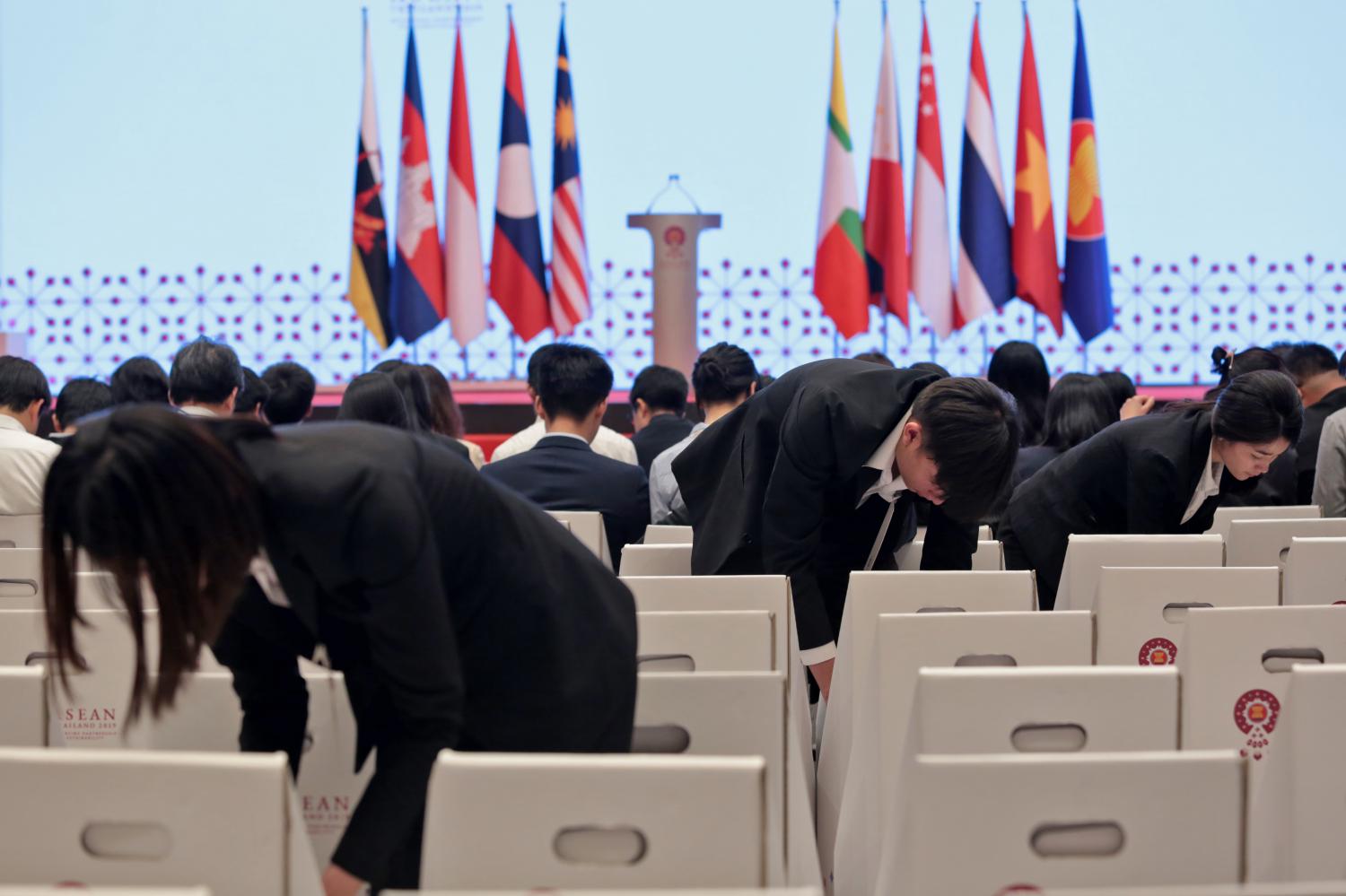
Even though economic development was one the key agenda items at the 34th Asean Summit held in Bangkok last week, human rights protection in the context of business operations seemed to not get sufficient attention from Asean leaders.
This is unfortunate, given there are pieces of evidence suggesting that economic development in the region has hardly been a just process for ordinary people, largely because many business operators have failed to adhere to human rights principles.
Held under Thailand's chairmanship, the summit was promoted with the theme "Advancing Partnership for Sustainability" aiming to gear the regional bloc towards a sustainable future and promote connectivity in trade, investment, tourism and digital markets.
Economic cooperation is one of the summit's highlights as leaders put effort into progressing Regional Comprehensive Economic Partnership (RCEP) negotiations -- a proposed free trade agreement between 10 Asean nations and six Asia-Pacific states: Australia, China, India, Japan, South Korea and New Zealand.
Prime Minister Gen Prayut Chan-o-cha tweeted on Saturday that he had discussed the matter with some Asean leaders in person, including Vietnamese Prime Minister Nguyen Xuan Phuc and several Indonesian delegates.
He said they agreed to cooperate on trade and investment as well as supporting each other's investors.
But this and other agreements relating to economic cooperation were mostly arranged at closed-doors meetings -- making a mockery of Asean as "the people-centred organisation".
Since the 1980s, neoliberalism has dominated liberalisation development strategies of most Asean nations and driven investment from within and outside the region -- leading to many development initiatives such as infrastructure projects, special economic zones, and electricity generation schemes. In recent years, many hydropower dams on the Mekong River and coal-fired power plants have made significant progress.
Of course, these projects have boosted economic growth. But they also brought about human rights violations and widened economic inequality. The situation is dire for the region because most Asean nations lack effective legal and regulatory systems, whether in the state or private sector, that guarantee rights protection.
Evidence has emerged across the region. For example, officials in Myanmar and Cambodia were found to have seized land from local farmers for promoting development plans associated with Thai investors.
On the island of Kalimantan of Indonesia, Malaysian palm oil companies are accused of evicting indigenous communities from their forest home and destroying the habitats of a rare species of orangutan.
In the Philippines, climate activists filed a complaint against the International Finance Corporation, the World Bank's arm, accusing the institution of accelerating global warming through its opaque investments in a Philippine bank that is a major financier of the coal industry.
These incidents took place as Asean governments turned a blind eye to the victims. When attending the Bangkok summit, they were reluctant to bring the issues up for discussion, because they did not want to interfere in each others' domestic matters.
In the past few months, a regional human rights mechanism -- the Asean Intergovernmental Commission on Human Rights (AICHR) -- has organised several meetings to encourage Asean governments and corporations to adopt the United Nations Guiding Principles on Business and Human Rights (UNGPs), which is a guideline for governments and companies to prevent and remedy human rights abuses committed in business operations.
However, AICHR was not fully capable of pushing human rights protection as a priority issue for Asean leaders during the summit which is criticised of being just "a talk shop of the elites".
On the other hand, Asean nations do not have effective mechanisms to regulate and monitor their banking sectors -- the most powerful player which has financed overseas development projects in other Asean countries.
According to the WWF Sustainable Banking Report in 2018, sustainability has not been fully embedded into the corporate governance mechanisms and processes of banks and other financial institutions in the region.
The report reveals from a survey of 34 banks in six Asean countries -- Indonesia, Malaysia, the Philippines, Singapore, Thailand and Vietnam -- that only 11 banks disclosed they reviewed their environmental and social policies and procedures periodically.
In addition, none of the Asean banks adopt the Equator Principles -- a financial institutions framework for assessing and managing environmental and social risk in project finance.
The disastrous dam structure failure in Laos last year illustrates the problem in the financing sector.
Funded by four Thai banks, the Lao dam collapsed in July last year, sending flash floods to villages in Attapeu province.
At least 40 people were killed and lover 6,600 people displaced. But Thai bankers kept a distance from showing responsibility for these unfortunate villagers despite their handsome earnings from the syndicated loan provided to the dam operator.
Feeling the urgency, civil society organisations across Asean have called on leaders to improve the legal and regulatory systems to ensure transparency and accountability in economic development.
As the leaders denied civil society groups' proposal for an interface meeting during the summit, some had no choice but to organise their own forums to tell their stories.
During a Wednesday forum under Project SEVANA South-East Asia, Riden Sun from an organisation called Focus on the Global South cited an opinion of a Cambodian villager whose land was seized by the government to clear the way for foreign investors by saying that: "Development is not for local people. It's for the rich."
In another case, local communities in Myanmar said they lost their land to the development of an access road for the Dawei deep-seat port project, while they are not sure how they can benefit from it, said Teerachai Sanjaroenkij, a researcher from the Mekong Butterfly, a civil society group monitoring Thai outbound investment.
Clearly, Asean people are facing growing challenges brought about by unjust development that undermine their rights.
They will never get a just society out of economic development, unless their leaders force the business community to integrate human rights protection into their operation and increase their commitment to transparency and accountability.
Paritta Wangkiat is a columnist, Bangkok Post.
